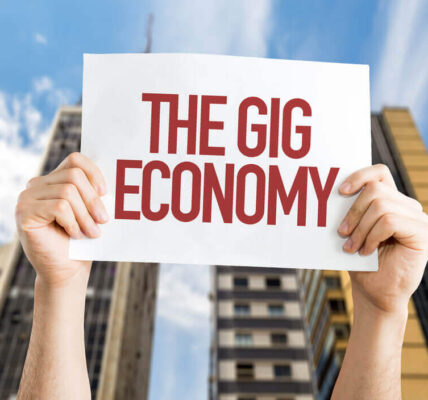Let’s face it, inflation has been hitting our wallets hard lately. From groceries to gas, everything seems to be costing more. But what exactly is inflation, and how is it changing the way we spend our money?
we’ll break down the impact of inflation on our everyday lives and offer some tips to help you cope with rising costs.
Understanding Inflation:
The Price Hike Explained
Imagine a basket filled with all your essentials – food, rent, gas. Inflation is like that basket slowly getting more expensive over time. Your money buys a little less each month, shrinking your purchasing power.
This rise in prices can be caused by a few things, like supply chain issues, higher production costs, or even government policies. The recent pandemic definitely threw some wrenches into the economic gears, contributing to the higher inflation rates we’re seeing today.
How Inflation Affects Your Budget
The first things to feel the pinch are usually necessities. Groceries, especially meat, dairy, and produce, are costing more. Renting an apartment or paying your mortgage can feel like a bigger burden every month. And let’s not forget gas prices – filling up your tank is a constant reminder of inflation’s sting.
With these essentials taking a bigger chunk out of our budgets, there’s less left for fun stuff. Dining out, entertainment, that weekend getaway – all these things might need to be put on hold or scaled back.
Savings? What Savings?
Inflation can also be a real downer for your savings goals. The money you’ve stashed away might not buy as much tomorrow as it does today. Especially if your savings account interest rate isn’t keeping up with inflation, the value of your savings is slowly shrinking. This can be especially worrisome for retirees or those on fixed incomes who rely on their savings to make ends meet.
Changing Habits:
How We’re Adapting to Higher Prices
So, how are we coping with this new reality? Here are some trends we’re seeing:
- Value Hunters: We’re all becoming champions of finding deals and discounts. Coupons, store sales, and loyalty programs are our new best friends.
- Quality Matters: We’re not just looking for cheap, we’re looking for smart. Durable, high-quality items that last are a better investment in the long run. Discount stores and bulk buying are becoming more popular ways to stretch our dollars.
- Brand Switch: Name brands might be tempting, but private label store brands are offering good quality at lower prices. After all, a can of beans is a can of beans, right?
- Credit and Buy Now, Pay Later: Some folks are turning to credit cards or “buy now, pay later” options to manage their budgets in the short term. But be careful, friends – relying on credit can snowball into debt if not managed wisely.
- Budgeting Basics: With inflation looming, more people are taking control of their finances. Budgeting apps and tools are becoming more popular as we track expenses and find ways to cut costs.
How Inflation Affects the Economy
Inflation isn’t just a personal struggle, it can impact the whole economy. When people feel uncertain about their financial future due to rising prices, they tend to spend less. This decrease in consumer spending can slow down economic growth.
Policymakers are constantly monitoring inflation and trying to find ways to manage it. They might adjust interest rates to try and curb inflation, but this can also make borrowing more expensive, further impacting spending and economic growth. It’s a balancing act!
In the worst-case scenario, inflation can lead to a “wage-price spiral.” This means that as prices go up, workers demand higher wages to keep up. But then, businesses raise prices to cover those higher wages, and we’re back to square one. Not a fun cycle for anyone.
Tips to Take Back Control
- Budgeting is Key: Track your income and expenses to see where your money goes. There might be areas where you can cut back and free up some cash for essentials.
- Double Down on Income: Consider taking on a side hustle or freelance work to bring in extra income and offset rising costs.
- Seek Expert Advice: A financial advisor can help you develop strategies to protect your savings, manage debt, and make smart investment decisions during these times.
Remember, knowledge is power. By understanding inflation and how it impacts your finances, you can take control and make informed decisions to navigate these economic challenges. We’re all in this together!




